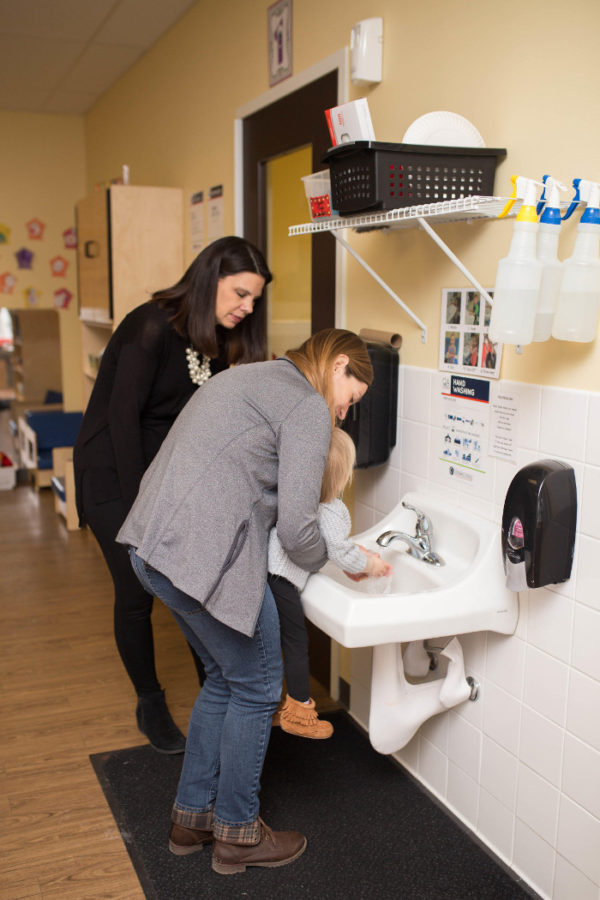By its very nature, a child care center can be a place that is very conducive to the spread of germs. With so many people all coming together from their different  environments, it can be very easy for one person to introduce a contaminant that can then infect several of the other occupants.
environments, it can be very easy for one person to introduce a contaminant that can then infect several of the other occupants.
Additionally, this is an environment with children, and that poses additional risks. Children have different, developmentally appropriate behaviors that increase the risk of cross-contamination, and their immune system isn’t as strong as that of an adult. For this reason, proper hygiene is a very important part of managing a childcare center.
For health promotion at a childcare center, implementing a hand washing policy is one of the best things you can do.
Why Hand Washing is Important
Germs can spread easily in childcare facilities. Children are curious, they touch and hold things that catch their attention and they play with other children and share toys. Therefore, germs can easily move from one person to the next.
Hand washing is vitally important! It is essentially the first line of defense against the spread of germs. With proper hand washing, you can help prevent the spread of illnesses like the common cold, the flu, pink eye, intestinal infections, and more.
When Should Hands be Washed
Hand washing is important for both children and the staff at a center. For the adults that work in a center, it’s probably easy to understand the value of hand washing and to adopt proper hand washing protocols. For the children, it may require some gentle reminders and a little supervision.
If you want to prevent the spread of germs, it is important to understand the events that represent a risk for the spread of germs and the potential for infection. The follow are just a few of the times when hand washing should occur:
- When arriving at childcare for the day
- After toileting or diapering
- Before and after eating
- Before food preparation or food handling
- After assisting with or blowing your nose/sneezing
- After touching an animal
- When coming in from being outdoors
- After cleaning
